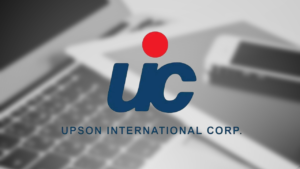MANILA -The European Chamber of Commerce of the Philippines (ECCP) is set to submit this week to the government its list of policy recommendations, detailing what businesses and other investors from the Philippines’ fourth largest regional trading partner wish to see in the Southeast Asian country this year.
ECCP president Lars Wittig on Monday told the inquirer that the 2023 Advocacy Paper was intended as a practical guide for the Philippine government, that also include a list of legislative measures they were supporting.
The documents will be handed to local authorities during the chamber’s annual European-Philippine Business Dialogue which will be held on Thursday this week where President Bongbong Marcos Jr. has been invited to attend.
The policy recommendations will cover a wide range of concerns, including free trade agreements, agriculture, the automotive sector, customs and logistics, environment and the water sector. They will also touch on the food and beverage sectors, healthcare, tourism, tax and financial service, renewable energy and energy efficiency, and human capital and education.
“There is much opportunity for Europe and the Philippines to strengthen their economic ties, especially in line with their longstanding trade and investment relations. It is highly encouraged that the Philippines further leverages its status as the only Asean country beneficiary of the EU GSP+ trade preference,” Wittig said during a press conference held ahead of the business forum.
“We equally look forward to further advancements in the EU-Philippines free trade agreement discussions, which are crucial for the Philippines to become a magnet for European investments,” he added.
According to the European Commission, trade in goods between the Philippines and the regional bloc totaled €15.2 billion ($16.4 billion if €1 = $1.0805) in 2021.
This makes the regional bloc the Philippines’ fourth largest trading partner, said the EU Commission, accounting for 7.9 percent of the country’s total trade in 2021, after China, Japan and the United States.
EU exports to the Philippines include machinery, transport equipment, chemicals and food products.
The Philippines’ main exports to the EU are office and telecommunication equipment, machinery, food products, and optical and photographic instruments.
Further, EU investments in the Philippines reached €14.4 billion ($15.6 billion) in the same year, making it the largest foreign investor in the Philippines, according to the commission.


